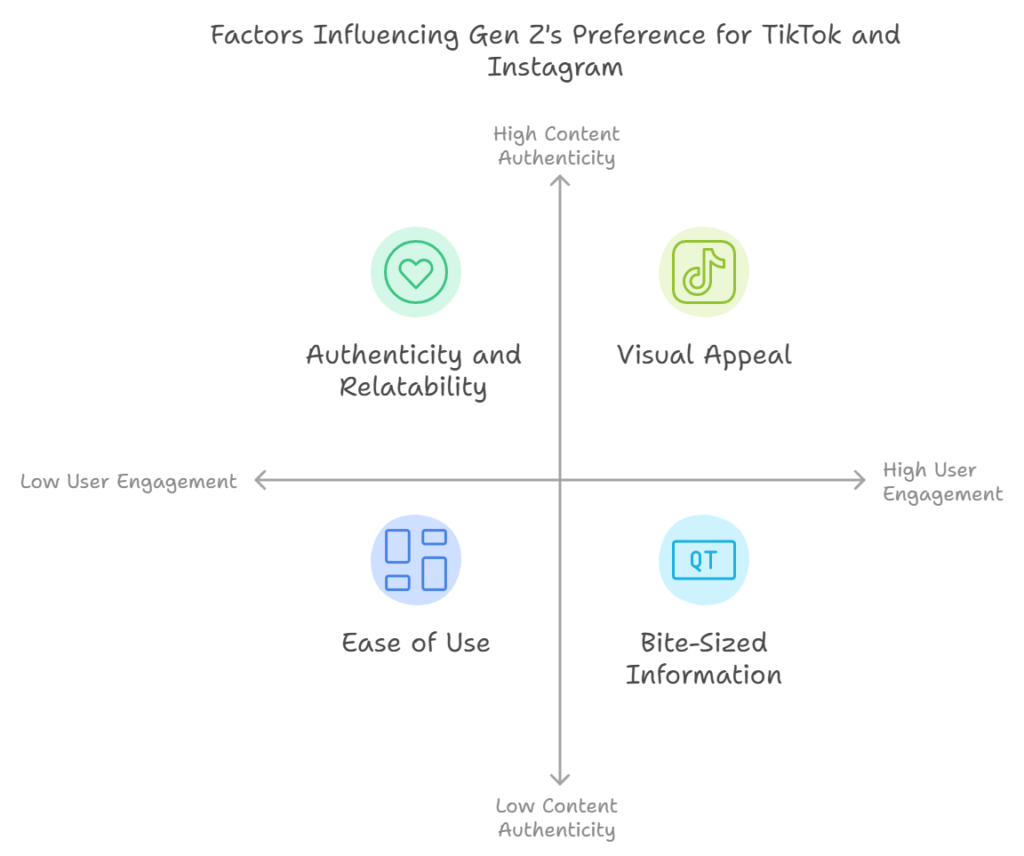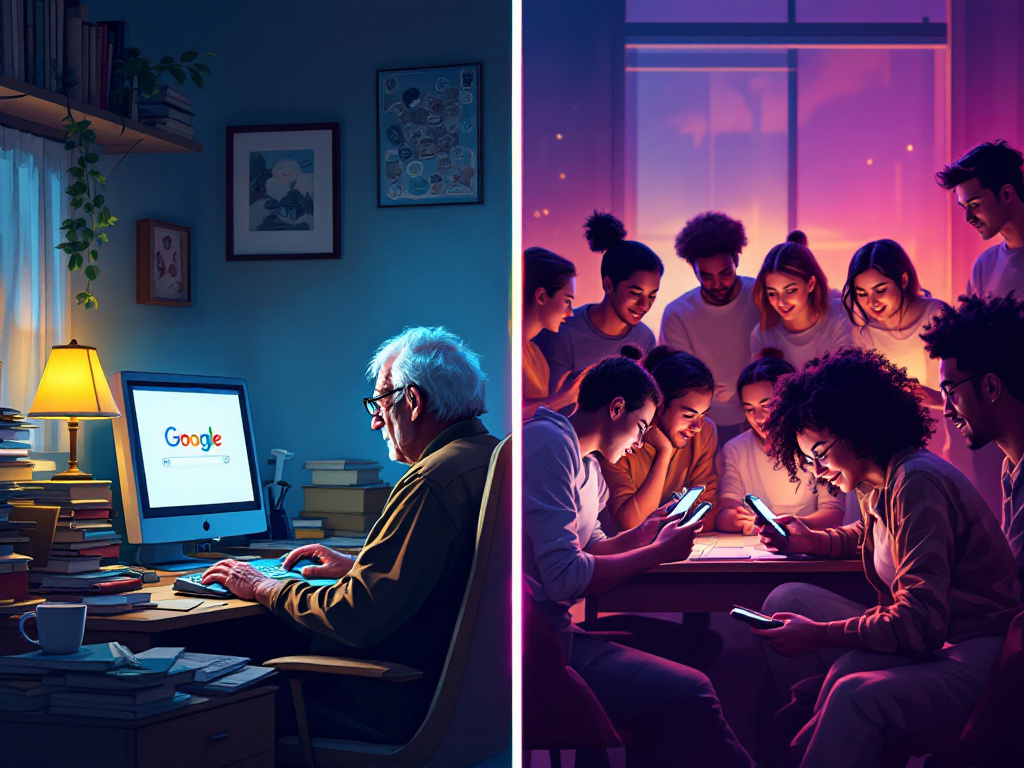Introduction
Remember when “googling” was synonymous with finding information online? For years, it was the go-to method for just about everyone seeking answers to their questions, from school projects to DIY fixes. But times are changing, and a shift is underway, particularly among younger generations. If you’re a member of Gen Z—the generation that grew up in a world where smartphones and social media were ever-present—you might already know that Google isn’t always the first stop anymore. Instead, many are flocking to more visually engaging platforms like TikTok and Instagram to satisfy their curiosity and discover new ideas.
How Gen Z is Redefining Search
Why the shift? It’s not just about preference; it’s a generational transformation in how people interact with technology. While older generations often see Google as the ultimate fountain of knowledge, Gen Z seems to view the platform as a relic of the past—an internet tool more suited to their parents’ way of doing things. For them, information doesn’t need to come from a list of text-heavy search results. Instead, it’s more appealing to find answers in a format that feels lively, entertaining, and visually immersive.
But what does this mean for the future of search? Are we witnessing the beginning of the end for traditional search engines, or is this a moment of adaptation and reinvention? It’s a fascinating evolution, highlighting how technology continues to shape—and be shaped by—the people who use it. So, what’s next for search in a world that increasingly values visual over verbal? Let’s explore!
The Decline of Google?
Sure, Google is still the big dog in the search engine world, with a whopping 90% market share. But cracks are starting to show, especially among younger users. Gen Z is finding Google’s search results cluttered with ads, spam, and AI-generated content that often misses the mark. Imagine digging through a bargain bin for a specific item – frustrating, right? That’s how many Gen Z users describe their Google search experience.
Instead of battling through irrelevant results, they’re heading straight to social media platforms where information is presented in a more visually engaging and digestible format. They’re watching TikTok videos to learn how to cook a new recipe, finding restaurant recommendations on Instagram, and even getting their news from influencers.
This shift in search behavior has some experts wondering if Google is losing its touch, especially with younger audiences. Let’s face it, no one wants to feel like they have to “trick” a search engine into giving them the information they need.
Why TikTok and Instagram Are Winning the Search Game
So, what’s the allure of these social media platforms? Why are Gen Z users choosing TikTok over tried-and-true Google?
Visual Appeal: Gen Z is a visually-oriented generation, and platforms like TikTok and Instagram cater perfectly to their preferences. Scrolling through visually engaging content feels more natural and enjoyable than sifting through pages of text-heavy results.
Authenticity and Relatability: Gen Z values authenticity, and they find it in the user-generated content that floods TikTok and Instagram. They trust the recommendations of their favorite creators and feel like they’re getting a more genuine perspective than what they might find on a traditional search engine.
Ease of Use: TikTok and Instagram have made significant improvements to their search functionalities, making it easier for users to find what they’re looking for. With features like predictive text and filters, these platforms provide a streamlined search experience that rivals traditional search engines.
Bite-Sized Information: Let’s be real, attention spans are shrinking. TikTok delivers information in quick, easily digestible chunks, perfect for a generation accustomed to consuming content on the go. Who has time to read lengthy articles when you can get the gist in a 60-second video?

What Does This Mean for the Future of Search?
Is Google going the way of the dinosaurs? Not quite. But this shift in search behavior signals a significant change in how people, especially younger generations, are accessing information online.
Google is aware of these changes and is trying to adapt by incorporating more visual elements and AI-generated summaries into its search results. They’re even experimenting with integrating TikTok videos directly into search.
However, Google’s efforts might not be enough to win back the trust and loyalty of Gen Z users who are already finding what they need elsewhere. Platforms like TikTok and Instagram are tapping into a deeper desire for authentic, relatable, and visually engaging content.
This isn’t just a challenge for Google; it’s a wake-up call for businesses and content creators. To effectively reach younger audiences, it’s crucial to understand their evolving search habits and preferences. Investing in a strong social media presence and creating content that resonates with Gen Z’s visual and authenticity-driven mindset is no longer optional – it’s essential.
Beyond Google: Exploring Alternative Search Options
While the future of Google remains to be seen, the rise of social media search highlights the growing demand for alternative search options. Here are a few other avenues worth exploring:
Niche Search Engines: Boutique search engines like those curated by Elan Ullendorff offer a more focused and curated search experience, often prioritizing human curation over algorithmic results.
Wikipedia: This crowd-sourced encyclopedia is gaining popularity as a reliable source of information, especially as users become disillusioned with Google’s cluttered search results.
Reddit: Searching specific subreddits or appending “Reddit” to your Google search can help you tap into the collective knowledge of passionate communities and find answers you might not have found elsewhere.

The Takeaway
The search landscape is changing. While Google remains a powerful force, the rise of TikTok and Instagram as search tools for Gen Z demonstrates a shift in user behavior, highlighting a preference for visual content, authenticity, and user-generated experiences.
This evolution presents both challenges and opportunities for businesses and content creators. By understanding Gen Z’s evolving search habits and adapting their strategies accordingly, brands can connect with this influential generation in meaningful and effective ways.

